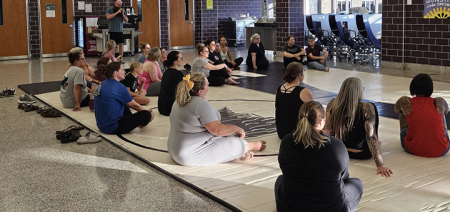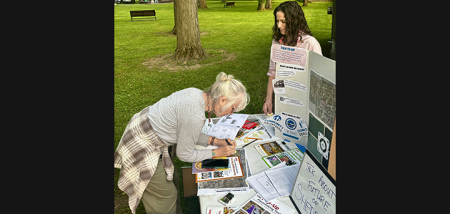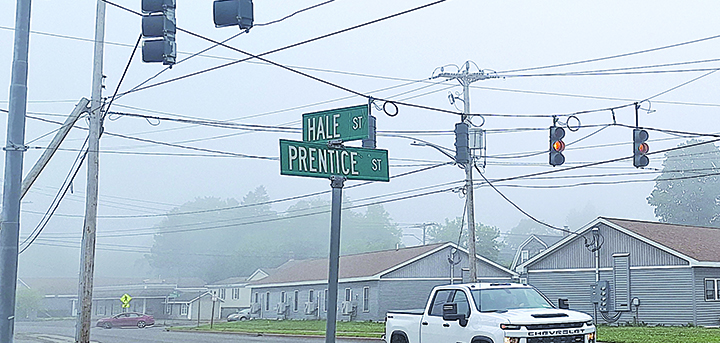Keep Calm And Kerri On: ‘The Exception Rather Than The Norm’
Published:
April 25th, 2022
By:
Sun Columnist Kerri Green

Dear Friends,
It’s no secret that today’s workforce is changing. It’s diverse, competitive and the worker of today has options … and they know it.
In this post-pandemic world, many companies are beginning to return to a “normal” or a “traditional” workday. They are starring to ask their employees to be in the office for set hours and give up their remote schedule. Not all workers are ready for this shift, and many are saying “no thank you” or bucking against this change.
As an employer, what are you to do? How do you level the playing field between your veteran workers who are looking forward to heading back to the office, but also offer flexibility to the workers that are looking for more work/life balance?
While most of us enjoy flexibility, the interpretation of what that means is different depending on who you ask. Does flexibility mean you come and go as you want to? Or does flexibility mean that if/when you need to adjust your schedule that your employer is more lenient to do so. Is the ability to work remotely now the exception rather than the norm?
Since I have been both the employee and the employer, so I have lived both sides of this.
I believe that employers want to be flexible and if you have the type of job that can be done away from the traditional office setting, exceptions can be made. However, you also want consistency and equality among your workforce and not every position may have this option. How do you extend the ‘flexibility perk’ to those who have jobs where they must be in the office, so they feel they have some options too?
Most employers would agree that offering flexibility comes with an enormous amount of trust. Can you allow someone the ability to work from home or with altered hours and trust that the work is getting done? For most of us who are trying to morph into this new reality, that can be a tall ask. Personally, I have always taken the stance that until you show me a reason not to trust you, I will. Yes, that takes a lot of faith and giving trust that hasn’t yet been earned but what’s the alternative?
I have been on the end of an employer who didn’t trust anyone to do their job when they weren’t in the office. So much so that they made us track our time and tasks into 15-minute blocks (which took an enormous amount of time). They would go over the tasks with you and would question why something took xx amount of time, etc. It was an impossible standard to meet and caused a lot of anxiety throughout the organization. After living through that nightmare, I promised myself that I would never do that to my employees, which is probably why I am so quick to offer the benefit of the doubt first.
As the employee how can you make sure that you are fulfilling your end of the deal? There are ways that you can show your commitment to the job and not give your employer cause for concern.
Are you someone who goes above and beyond to get their job done?
Are you a “clock puncher” or do you get the work done, regardless of it being quitting time?
Are you someone who is constantly reminding your employer about the “extra time” you put into a project and then asking for that time in kind?
How often are you asking for your schedule to be flexed?
These are all things that employers consider when evaluating their staff and considering flexible working conditions. If you are invested in doing a good job, rather than just getting the job done, it helps to build that trust. The more trust you build, the more flexible your employer will be with you.
Today’s employer also knows that competition for a trained workforce is tight. Yes, there are a lot of jobs available and what seems to be a limited supply of qualified workers. What does that mean to the employer? Well, if your employee isn’t getting what they want from you, they will not give it a second thought to leaving. In today’s landscape, if you get 3 – 5 years out of an employee that is pretty good. It is easy to job hop, go somewhere for more money, sign on bonus or benefits you can’t offer.
The feeling among those in the human resources field is, this will soon end.
Employers are beginning to be more demanding of their staff and they are realizing that this overflowing job market is soon going to dry up. It won’t be so easy to job-hop as it once was and competition for skilled workers will be tight.
While today is certainly a “buyers” market so to speak, soon it will be a “sellers” market. What does that mean for today’s job seeker? The employee will need to learn what it means to be flexible and learn to work with their employer on the things that matter most.
The days of working totally remote are not here to stay, although the feeling among the workforce development experts is that some flexibility, including hybrid options, are likely the new norm. You will be required to be in the office with some consistency and employers are looking to get back to a more traditional setting.
Whether you are an employer or employee I think we can all agree that the landscape of today’s workforce is changed forever. Things such as flexibility, workplace culture, benefits are much more important than ever before. While the employer needs to be mindful of this, I think that employees also need to be realistic about their expectations and understand that this employer-employee dynamic takes time to build.
Be well,
~ Kerri
The views and opinions expressed in this publication do not necessarily reflect the views and positions of any entity that this author represents.
Comments







